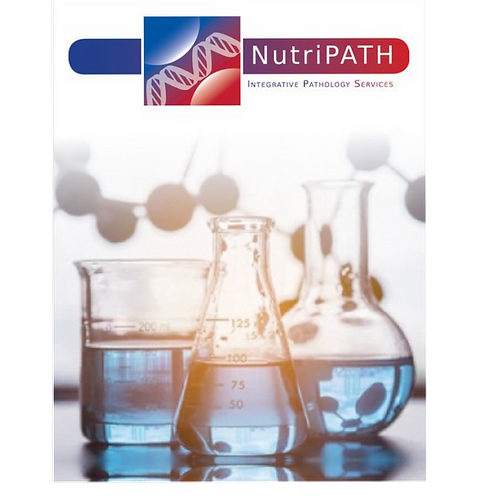

Complete Digestive Stool Analysis (CDSA)
Method - Stool
Take your sample in the comfort of your own home and send via pre-paid courier to the lab.
Test Results
2-3 weeks
Sample Report
CDSA level 4 + PCR sample report
Items tested
Analytes
Macroscopic markers
-
blood
-
colour
-
mucus
Digestive markers
-
Fat globules
-
Starch
-
Meat fibres
-
Vegetable fibres
-
Pancreatic elastase
-
Short chain fatty acids
-
Long chain fatty acids
-
Red blood cells
-
White blood cells
Metabolic markers
-
b-Glucuronidase
-
pH
-
Butyrate
-
Acetate
-
Propionate
-
Valerate
Inflammation markers
-
Calprotectin
-
Secretory IgA
-
Transglutaminase
Tumor/ulcer markers
-
Heliobactor Pylori
-
M2 Pyruvate Kinase
Beneficial Bacteria
-
Bifidobacterium longum
-
Bifidobacterium bifidum
-
Bifidobacterium animalis
-
Bifidobacterium pseudocaten
-
Bifidobacterium breve
-
Escherichia coli
-
Lactobacillus plantarum
-
Lactobacillus rhamnosus
-
Lactobacillus paracasei
-
Lactobacillus casei
-
Lactobacillus acidophilus
-
Enterococci
Pathogenic Bacteria
-
Campylobacter spp
-
Salmonella spp
-
Shigella spp
-
Yersinia enterocolitica
-
Aeromonas spp
Opportunistic & dysbiotic bacteria
-
Klebsiella pneumoniae
-
Citrobacter freundii
Yeasts
-
Candida albicans
-
Geotrichum spp
-
Rhodotorula spp
-
Other Yeasts
Parasites (visual & chemical EIA detection)
-
Blastocystis Hominis
-
Dientamoeba fragilis
-
Cryptosporidium
-
Giardia lamblia
-
Entamoeba
-
Other Parasites
Antibiotic sensitivities
-
Amoxicillin
-
Ampicillin
-
Augmentin
-
Ciprofloxacin
-
Norfloxaci
-
Meropenem
-
Cefazolin
-
Gentamycin
-
Trimethoprim/Sulpha
-
Erythromycin
-
Penicillin
Inhibitors
-
Berberine
-
Black Walnut
-
Caprylic Acid
-
Citrus Seed
-
Coptis
-
Garlic
-
Golden seal
-
Oregano
Worms
-
Ancylostoma duodenale, Roundworm
-
Ascaris lumbricoides, Roundworm
-
Necator americanus, Hookworm
-
Trichuris trichiura, Whipworm
-
Taenia specie, Tapeworm
-
Enterobius vermicularis, Pinworm
For a detailed list of all items tested, please click on the sample reports next to the CDSA level 1, 2, 3 or 4 above.
4 out of the 15 sample report pages

.jpeg)

.jpeg)
1-day collection stool collection
The CDSA (Comprehensive Digestive Stool Analysis) test helps practitioner catch problems early, create specific personlised treatment plans, and reduce the chances of your symptoms coming back. It also helps practitioners decide if a more invasive procedure, like a colonoscopy, is truly necessary.
The CDSA test is often recommended for patients with general or unclear gut-related symptoms, such as IBS, indigestion, imbalanced gut bacteria (dysbiosis), constipation, or diarrhoea. It’s also useful for detecting yeasts, bacteria, and parasites by using both visual and chemical detection methods.
An added benefit of the Level 4 test is sensitivity testing. If bacteria or yeast are found in the gut, they’re tested against both natural and prescription treatments to help the doctor choose the best option for each patient.
Conditions Where a CDSA Test is Recommended
-
IBS
-
Diarrhoea
-
Bloating
-
Chronic exhaustion/Fatigue
-
Constipation
-
Excess wind
-
Indigestion/Reflux
-
Skin conditions
-
Never satisfied or full after meals
-
Symptoms after having been on a recent vacation
-
Abdominal pain, spasms
To book your consultation, click here.
